We recently sat down for an inspiring chat with LWA member Sophia Lysaczenko, co-op member and co-director of Hempen Organic, to hear about the incredible ecological, social and medicinal benefits of growing hemp in the UK, and why everybody isn’t growing it.
“It’s a beautiful plant. Absolutely stunning. I’m absolutely fascinated with it”, exclaims Sophia Lysaczenko, one of the few smaller scale organic hemp farmers in the UK, as she waxes about this miracle plant and its seeds. “The shame of it, though, is that the licensing at the moment doesn’t make it accessible to all farmers and growers”.
Sophia (pictured, right) is a grower, co-op member and co- director at Hempen Organic, a workers cooperative based on the 900-acre Hardwick Estate in South Oxfordshire. Established in 2015, Hempen is the UK’s first and leading organic hemp farm, with the aim to form a resilient community centred around the cultivation of hemp, and its potential to ‘clothe us, house us, fuel us, feed us and heal us’. They grow hemp for seed and fibre working with other local partner farmers cultivating between 10 and 100 acres each year, in the open fields, in living soil. They are a David to the Goliath of indoor, chemically-grown, energy-intensive, pharmaceutical CBD and the large-scale, monocrop industrial production of hemp.
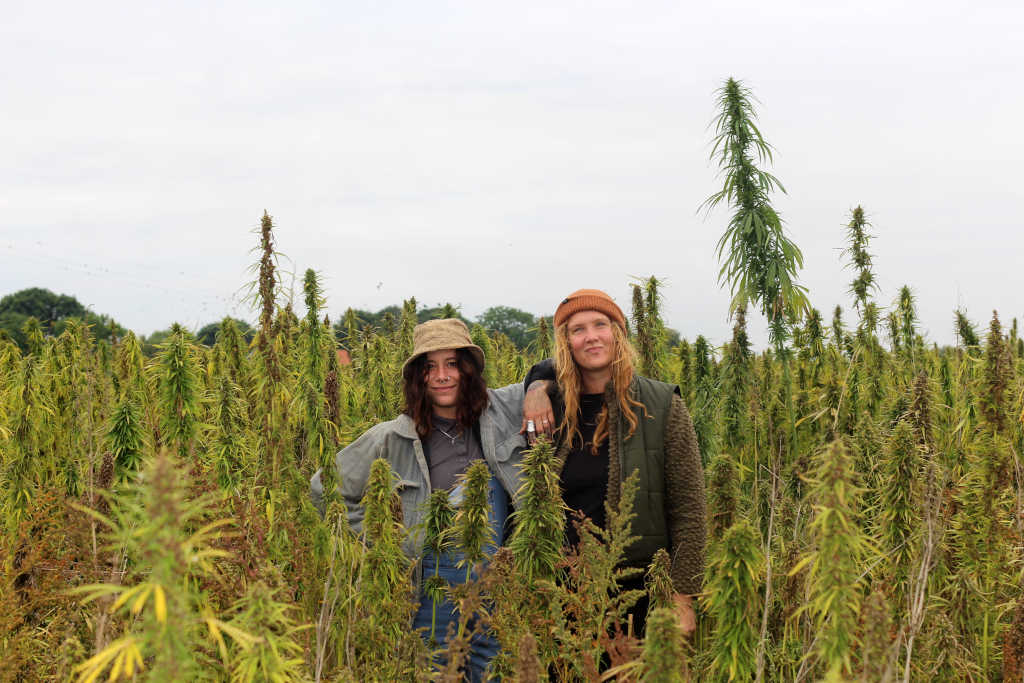
Sophia with Justine Gens (another co-op member of Hempen Organic) in the hemp field
“We grew alot of hemp on this island at one point – it’s a weed, a common weed!”
Sophia Lysaczenko, Hempen Organic
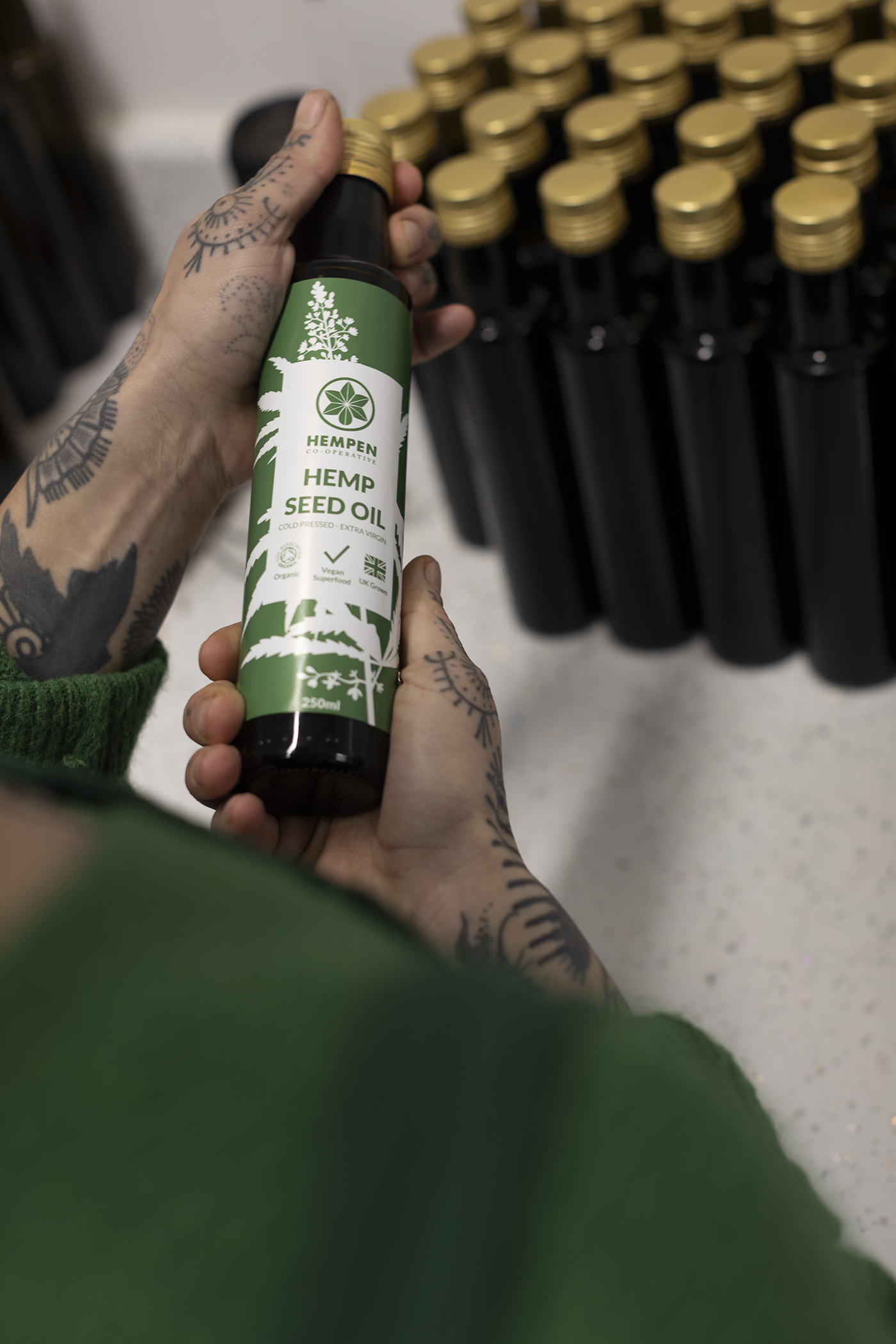
CREDIT: HEMPEN ORGANIC
“We grew alot of hemp on this island at one point”, says Sophia, “it’s a weed, a common weed!” In fact, back in the 16th century it was a legal requirement to grow hemp on at least a part of your land – a quarter of an acre for every 60 acres – due to its importance for rope and canvas for ships! Hemp and cannabis are essentially the same thing. Cannabis comes from the small botanical family of Cannabaceae. Hemp today classically refers to the varieties of Cannabis which are more suited to field scale growers, is typically more robust and hardy, often with less delicate compounds (like THC), and can either grow taller for creating fibre or they can produce lots of hemp seeds for creating food. Hemp is also known as industrial hemp, as it’s used on industrial scales for lots of end uses.
Hemp is hugely valuable as a nutrient rich food, as medicine, natural textiles, as a bio-cleaning product, eco-building material and biodegradable plastic alternative. It’s even been used as a clean renewable energy source as a biofuel and battery. Is there another plant on earth that can do so much?
“The hemp plant is one of the most nutritious, regenerative and versatile plants on the planet. With 50,000 known uses and counting, we’re still discovering more!”
Hempen Organic
Sophia is sure that hemp must be one of the most nutritious plants on Earth – it’s seeds are one of the best sources of complete plant-based protein, containing all 9 essential amino acid, boasts higher quantities of the ‘golden ratio’ of Omegas 3, 6 and 9 than fish oil, and is a rare source of nutritional vitamin D. It is also high in vitamin E, which makes it the perfect healing remedy for skin conditions. Farmers are using it widely to help deal with rashes, cracked skin and wear and tear.
What’s more, hemp could play a vital role in reversing the effects of carbon emissions and climate change. If there is sufficient organic matter, then one hectare of hemp can absorb 22 tonnes of CO2, according to research by Jersey Hemp and the Carbon farm which, in terms of carbon sequestration and soil carbon retention, makes it much more effective than agroforestry. The plant has deep roots, supporting the soil structure, allowing it to grow in diverse soil types and conditions and adding nutrients to the soil by tapping into sub-soil nutrients other plants cannot access. Hemp is a natural weed suppressant, and is often grown as a ‘break crop’ to help reduce weed pressure. The cannabinoids present in hemp biomass are known to be anti-insecticidal and destroy root knot nematodes and other soil pests when returned to the soil. Hemp is also a great asset to agro-biodiversity.
Oh, it doesn’t stop there! Hemp, like sunflowers, can also clean toxins from the ground, and so can be grown as a remedial plant in land polluted by heavy metals. The soil cleans itself through the plant – and the best bit, Sophia tells me, is that the seeds can be unaffected! It has been known for the seeds of plants used for bioremediation to emerge unaffected by the toxins, and can be used back into the land to improve the soil again! That’s also why its important as a food or medicine to choose organically certified hemp.
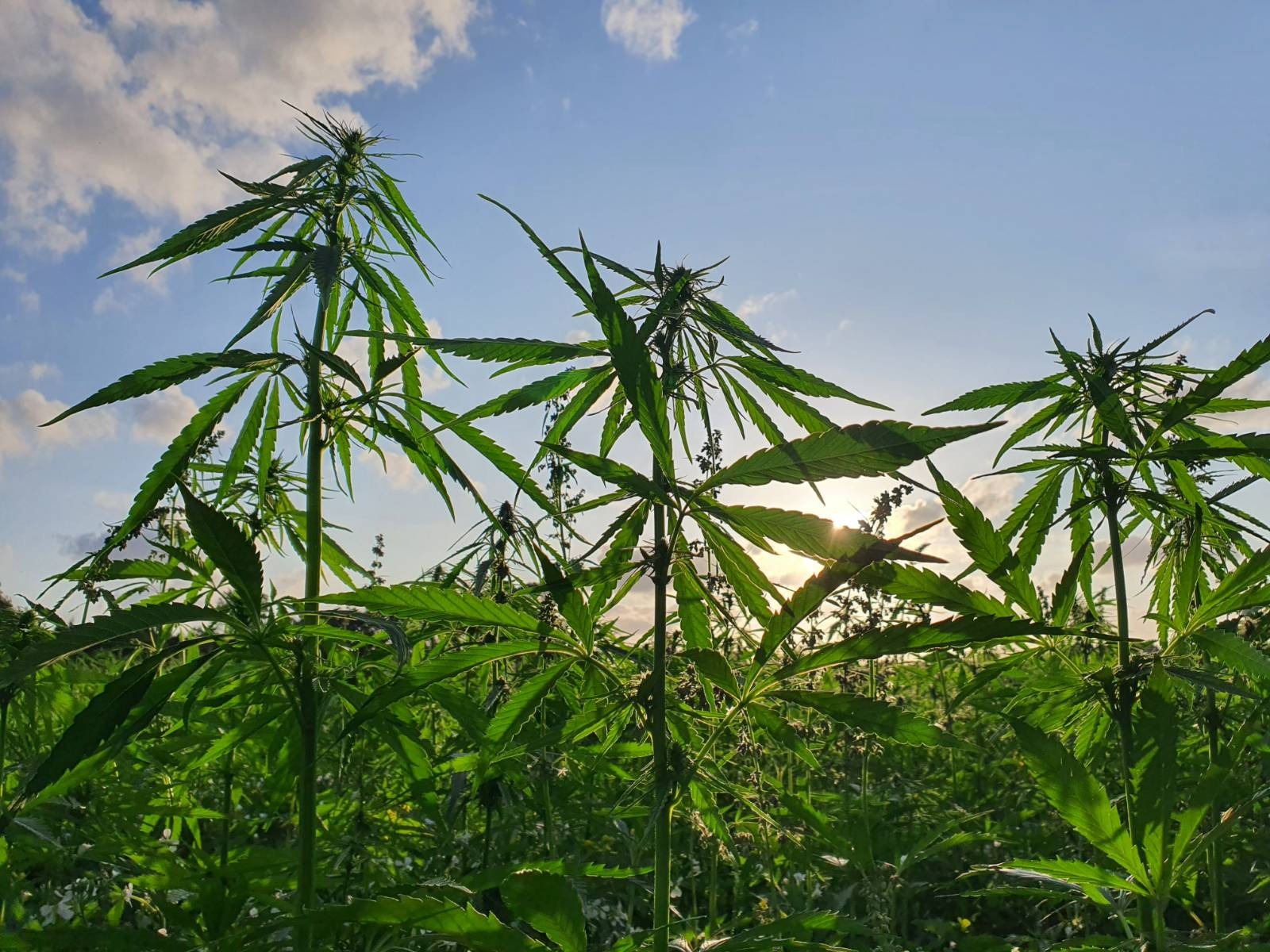
CREDIT: Hempen Organic
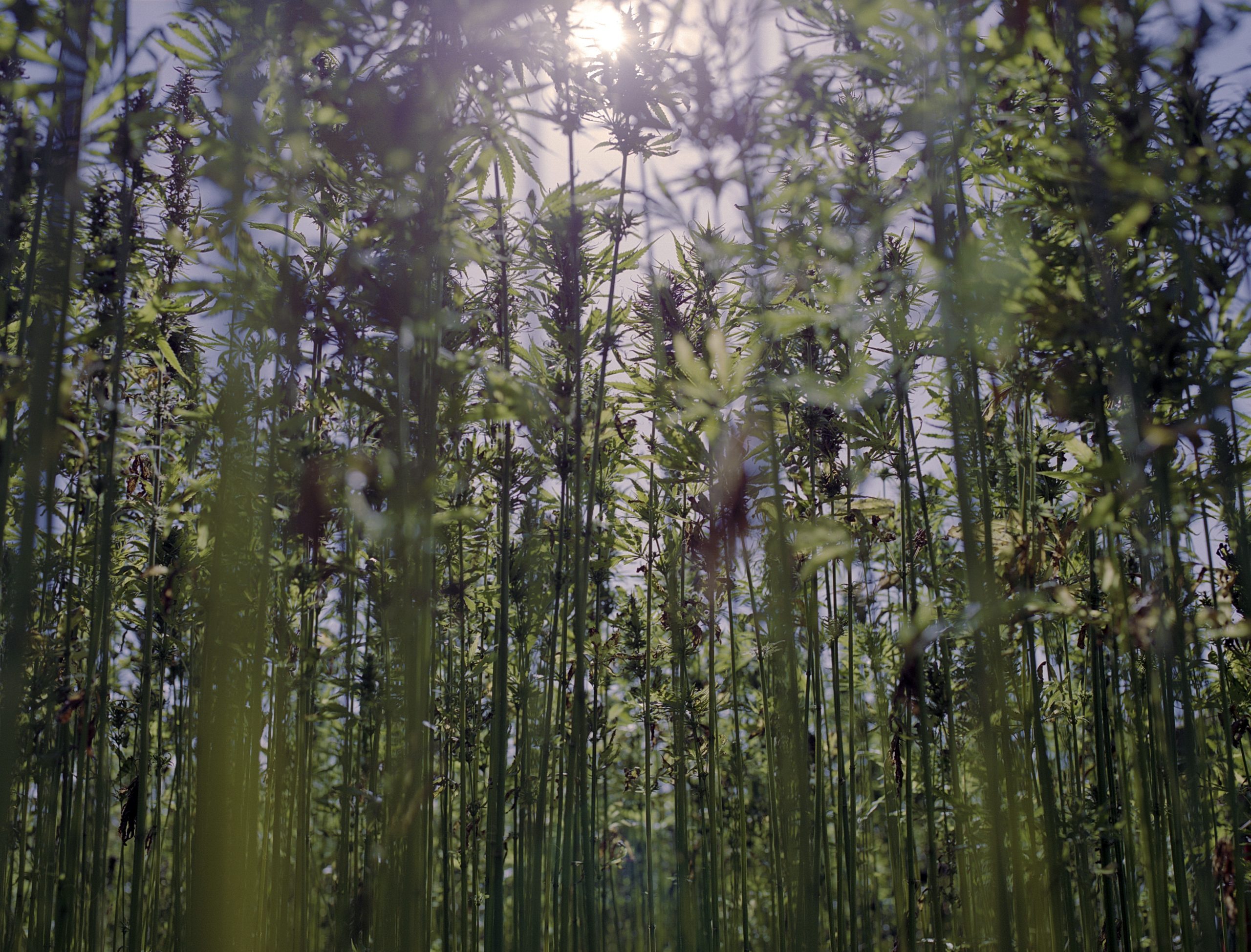
CREDIT: Ksenia Burnasheva
“Everyone should grow hemp. But the licensing application process can be very difficult”
Sophia Lysaczenko, Hempen Organic
You’re probably wondering the same as I was – why aren’t we all growing it?! Sophia agrees. “Everyone should grow hemp. But the licensing application process can be very difficult”. To produce hemp legally in the UK, a license must be granted by the Home Office, and the plants must contain less than 0.2% THC to be applicable. A first-time license to grow hemp costs £580, plus other fees, takes alot of time and resilience and enough money and resources to support going for it – “You’ve got to be up for a challenge.” In 2019, as reported in this Guardian article, Hempen were forced to destroy 40 acres of hemp due to unexpected changes in Home Office guidelines, costing them as estimated £200,000.
Licensing is one of the biggest hurdles to the widespread cultivation of hemp, and of small-scale, agroecological growers adding it to their farm system. Hempen have worked hard to keep within the regulations, and work harder to encourage the growth of hemp is a leading crop. “We do what the law allows us to, which is not necessarily what we would choose to do”, says Sophia. Hempen sit on the Cannabis Industry Council, a government think-tank, but often find themselves some of the only farmers in the room. Sophia says that a lack of knowledge and understanding amongst MPs is the reason why licensing is not easier, and the pressure on farms to do their own research and come up with adequate evidence to prove their point.
“A hemp industry is coming”
Sophia Lysaczenko, Hempen Organic
But Sophia remains positive. Not only is she a hemp evangelist and absolutely convinced that this is the plant of the future, but she’s also sure that this is only the beginning; “This is the exciting thing I can say to growers – this is only going to get bigger. A hemp industry is coming”
There have been some movies in the right direction since our conversation, and on 9th April 2024, the licensing regime announced changes to hemp licensing – such as a deferred start date, meaning you don’t miss out on your first year of cultivation, a change from 3 to 6 years licence and slight rise of THC level to 0.3%. “These are minor but worthy changes helping recognise hemp as a field-grown agricultural crop”, Sophia wrote to me in an email after the announcement, “and will enable more farmers to add hemp to their crop rotations, building towards a bioeconomy. We can only keep sharing knowledge and believe that these improvements will continue.”
“France, for example, is the third largest industrial hemp producer in the world and the top producer in Europe. In Switzerland, 1% THC is allowed in cultivation. We would like to see the day, maybe soon, that hemp is treated like barley and not worse than whiskey.”
___
Hempen are working to create a hemp farm that is accessible to all – it’s the only hemp farm in the country that you can volunteer at. Over 1000 people have volunteered over the years, alongside paid workers. Hempen has prioritised supporting its volunteer programmes, and has seed funded ‘Growing Solidarity’, their outreach project which connects refugees and marginalised people to the farm – to make hemp, the farm and nature accessible.
“We stand within a wide network of organisations and collectives working to build alternatives to current systems. We are resisting the systems that don’t place the wellbeing of all its participants at the heart. Collectively, our small actions can lead to big changes. It is through these actions that we can build a better future for the generations who will come after us.”
Hempen Organic
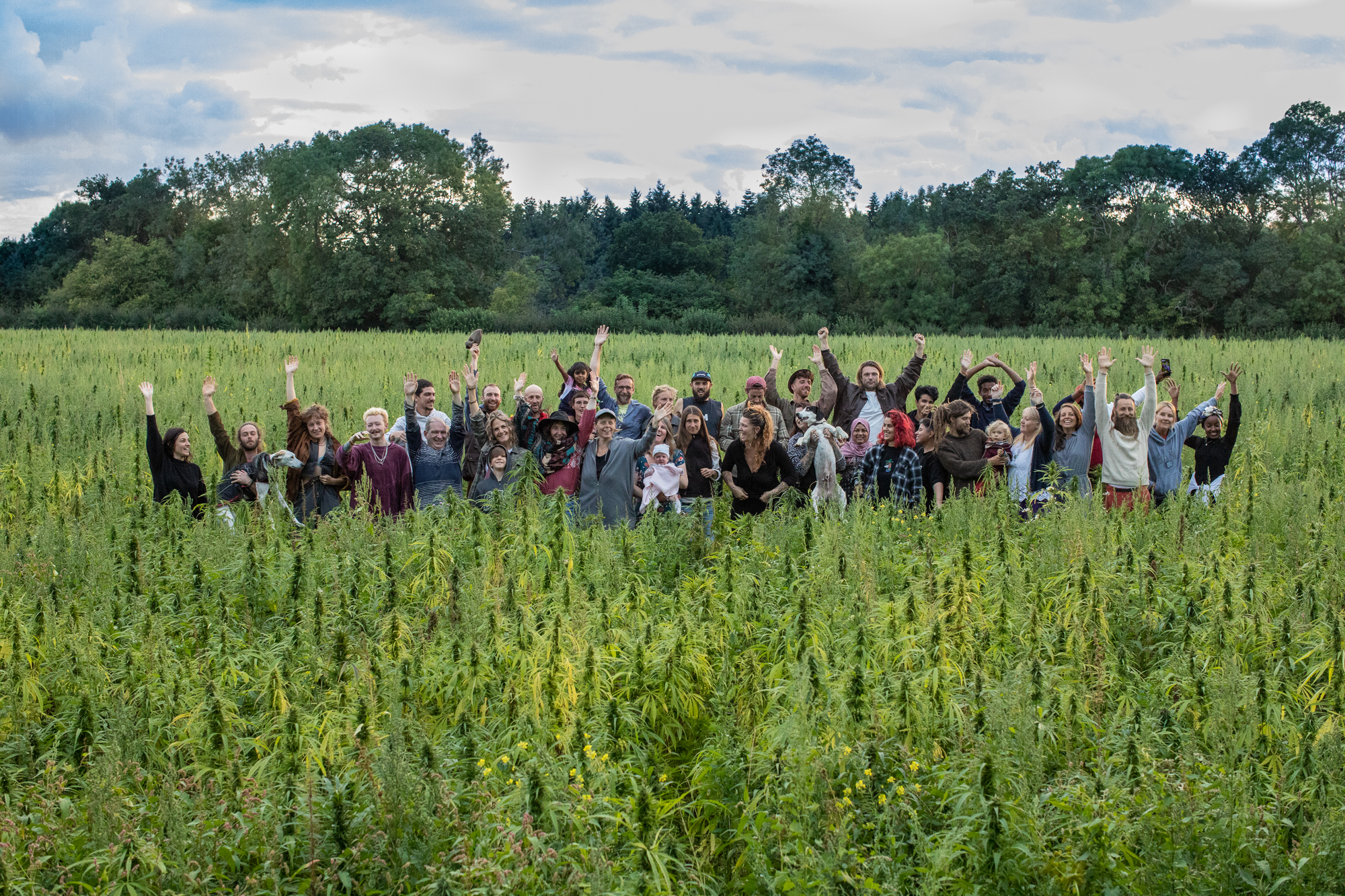
CREDIT: Ksenia Burnasheva
Sophia finds hope in the seeds of hemp; “I’d been what you call an environmental activist for many years. It felt like you’re fighting a monstrous losing battle, and it takes alot of energy. Being out in organic fields of hemp is hopeful. It feels like I’m being proactive in the building of a new system in the shell of the old.”
___
If you’d like to find out more about the benefits of hemp, click here. And don’t miss the Hemp Fair on Sunday 26th May 2024 at the Hardwick Estate! It promises an incredible line-up of workshops that demonstrate hemp’s versatility in textiles, natural dyeing, mushroom cultivation, alchemy and building. It’ll be a great opportunity to get stuck in, learn and take something hempy home! As well as talks from experts in the hemp industry for those curious to learn more!
Do you have a story to tell? Would you like to feature in our ‘Landtalkers’ series of member profiles like this one?
We are so proud of the work that our members’ are doing in towns, cities and in the fields, woodlands, coastal areas of these lands. We think you voices deserve to be heard, and we want to celebrate the diversity, power and breadth of our movement, give you a platform to share what you are doing on land and demonstrate the possibility of agroecology at this moment as the great challenges of our times converge.
Are you active in your region – maybe you’ve got something to say about the challenges and opportunities where you are? We’d love to hear from new entrants or landless workers feeling their way into agroecology and understand what that’s like for you. Maybe you’re breaking new ground, forging into a sector where you don’t see people like you represented.
All sectors, scales and places in the supply chain – farmers, growers, sustainable foresters, land-based craftspeople, food processors, seaweed harvesters, millers, machinery operators and more…. We’d love to hear from you. Tell us your story or nominate someone on your farm, business, region, sector or from FLAME, REAL, OOTL or Wome



